Islam and the Age of Unreason: An Analysis of Intellectual Suicide
£21.30
The problem in traditional Islam is that it is “traditional,” grounded in tradition rather than revelation, based on the way Muslims practiced Islam rather than on the way they were expected to practice it. For how Muslims practice Islam was not always the way it was intended to be practiced by Allah. Muslims drifted from the Book of Allah to follow the books of traditions. “When they are told to follow the (Revelation) that Allah has sent down, they say: “Nay, we shall follow the ways that we found our fathers (following). “What! even if it is Satan beckoning them to the Penalty of the (Blazing) Fire.” [1]
There is a chasm between a rule and its practice, between appearance and reality, between the “normative” Islam of the Book of Allah, as Fazlur Rahman put it, and the “historical” Islam of tradition. By treating tradition as “revelation,” traditionists paved the way for tradition to become a “second” revelation (tanzil). The concept of dual revelation paved the way for the emergence of the concept of dual legislation. This is why reformers support the desacralisation of tradition. “The Indonesian reformer Nurcholish Madjid has referred to this phenomenon as the “sacralization” of tradition in Islam and called for a “de-sacralization” of tradition. However, he does not reject the importance of tradition but the notion of a fixed, static tradition, arguing that tradition and consensus or ijma are ongoing and cumulative.” [2] Islam is an Abrahamic faith. The Book of Allah refers to the Jewish prophets as well as Jesus. The Book of Allah presents itself as a reiteration of the previous revelations, known as the Bible. Traditional preachers highlight differences between the Book of Allah and the Tawrat and the Injeel. Thereby they widen the gap between different faiths. These assertions fail to do justice to the universality of Islam. The Book of Allah emphasizes its parallels with the previous revelations. The UAE established the Family of Abrahamic Faiths centre. The Book of Allah does not engage in “Bible bashing,” as a few traditional preachers do, endeavouring to showcase the “superiority” of the Book of Allah in relation to the Bible. The Book of Allah does not “abrogate” the preceding revelations, as exegetes with a penchant for a parochial perspective assert. The Book of Allah reiterates the previous revelations and clarifies misconceptions regarding them. For these revelations were misrepresented. Jesus is treated as greater than a prophet. This is tantamount to attributing a “partner” to Allah, which defies tauhid. The Book of Allah exhorts us to refrain from shirk. Associating “partners” with Allah is the worst transgression. The Book of Allah rejects associating with Allah what He gave no authority for: “Say: the things that my Lord hath indeed forbidden are: shameful deeds, whether open or secret; sins and trespasses against truth or reason; assigning of partners to Allah, for which He hath given no authority; and saying things about Allah of which ye have no knowledge.” [3] “God will not forgive Shirk (choosing ‘authorities’ besides Him), though He may forgive other transgressions according to His law of forgiveness. Whoever commits Shirk, has strayed far, far away.” [4]
“Set up no god or ‘authority’ along with God. I am a plain warner to you from Him.” [5]
[1] Quran, 31:21, trans by A Yusuf Ali: https://www.islamawakened.com/quran/31/st30.htm.
[2] John L. Esposito, “Rethinking Islam and Secularism,” ARDA, Association of Religious Data Archives, p. 17,
http://www.thearda.com/rrh/papers/guidingpapers/Esposito.pdf.
[3] Quran 7:33, trans by A Yusuf Ali: https://corpus.quran.com/translation.jsp?chapter=7&verse=33.
[4] Quran, 4:116, trans by Shabbir Ahmed: http://quranix.org/4#116.
[5] Quran, 51:51, trans by Shabbir Ahmed: http://quranix.org/51#51.
There is a chasm between a rule and its practice, between appearance and reality, between the “normative” Islam of the Book of Allah, as Fazlur Rahman put it, and the “historical” Islam of tradition. By treating tradition as “revelation,” traditionists paved the way for tradition to become a “second” revelation (tanzil). The concept of dual revelation paved the way for the emergence of the concept of dual legislation. This is why reformers support the desacralisation of tradition. “The Indonesian reformer Nurcholish Madjid has referred to this phenomenon as the “sacralization” of tradition in Islam and called for a “de-sacralization” of tradition. However, he does not reject the importance of tradition but the notion of a fixed, static tradition, arguing that tradition and consensus or ijma are ongoing and cumulative.” [2] Islam is an Abrahamic faith. The Book of Allah refers to the Jewish prophets as well as Jesus. The Book of Allah presents itself as a reiteration of the previous revelations, known as the Bible. Traditional preachers highlight differences between the Book of Allah and the Tawrat and the Injeel. Thereby they widen the gap between different faiths. These assertions fail to do justice to the universality of Islam. The Book of Allah emphasizes its parallels with the previous revelations. The UAE established the Family of Abrahamic Faiths centre. The Book of Allah does not engage in “Bible bashing,” as a few traditional preachers do, endeavouring to showcase the “superiority” of the Book of Allah in relation to the Bible. The Book of Allah does not “abrogate” the preceding revelations, as exegetes with a penchant for a parochial perspective assert. The Book of Allah reiterates the previous revelations and clarifies misconceptions regarding them. For these revelations were misrepresented. Jesus is treated as greater than a prophet. This is tantamount to attributing a “partner” to Allah, which defies tauhid. The Book of Allah exhorts us to refrain from shirk. Associating “partners” with Allah is the worst transgression. The Book of Allah rejects associating with Allah what He gave no authority for: “Say: the things that my Lord hath indeed forbidden are: shameful deeds, whether open or secret; sins and trespasses against truth or reason; assigning of partners to Allah, for which He hath given no authority; and saying things about Allah of which ye have no knowledge.” [3] “God will not forgive Shirk (choosing ‘authorities’ besides Him), though He may forgive other transgressions according to His law of forgiveness. Whoever commits Shirk, has strayed far, far away.” [4]
“Set up no god or ‘authority’ along with God. I am a plain warner to you from Him.” [5]
[1] Quran, 31:21, trans by A Yusuf Ali: https://www.islamawakened.com/quran/31/st30.htm.
[2] John L. Esposito, “Rethinking Islam and Secularism,” ARDA, Association of Religious Data Archives, p. 17,
http://www.thearda.com/rrh/papers/guidingpapers/Esposito.pdf.
[3] Quran 7:33, trans by A Yusuf Ali: https://corpus.quran.com/translation.jsp?chapter=7&verse=33.
[4] Quran, 4:116, trans by Shabbir Ahmed: http://quranix.org/4#116.
[5] Quran, 51:51, trans by Shabbir Ahmed: http://quranix.org/51#51.
Read more
Additional information
| Publisher | Independently published (17 May 2023) |
|---|---|
| Language | English |
| Paperback | 226 pages |
| ISBN-13 | 979-8395004291 |
| Dimensions | 15.24 x 1.3 x 22.86 cm |

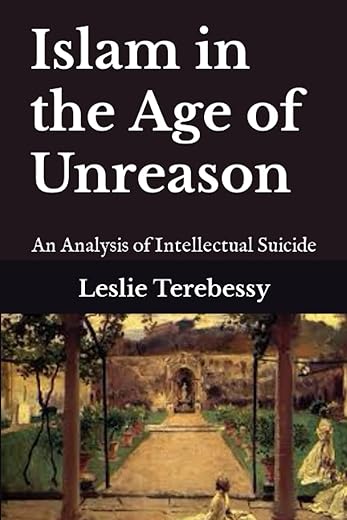

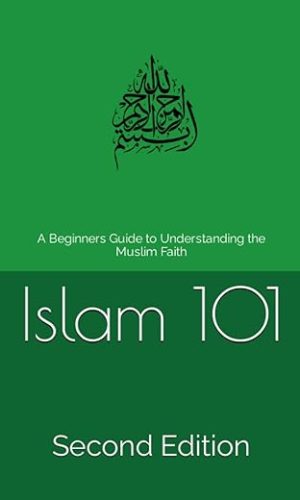
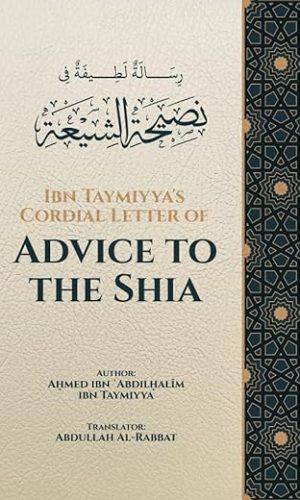

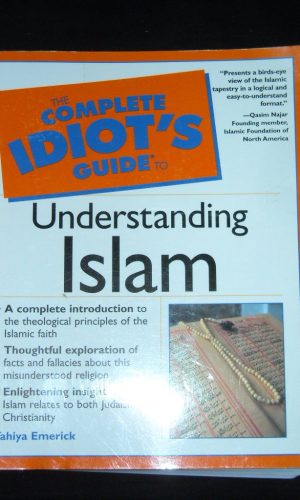
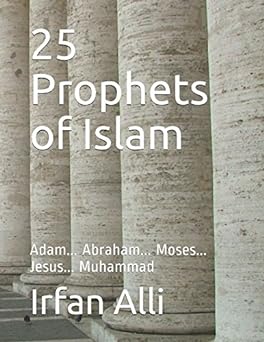
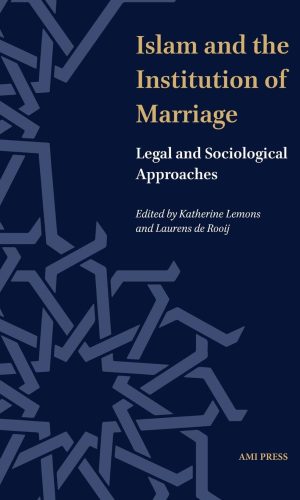
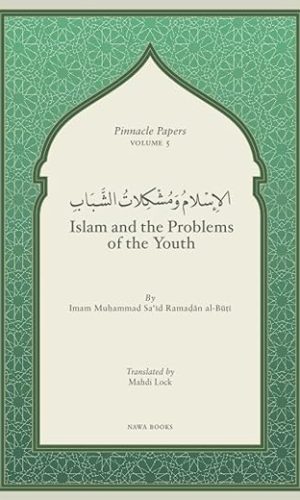
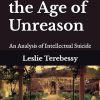
Reviews
There are no reviews yet.